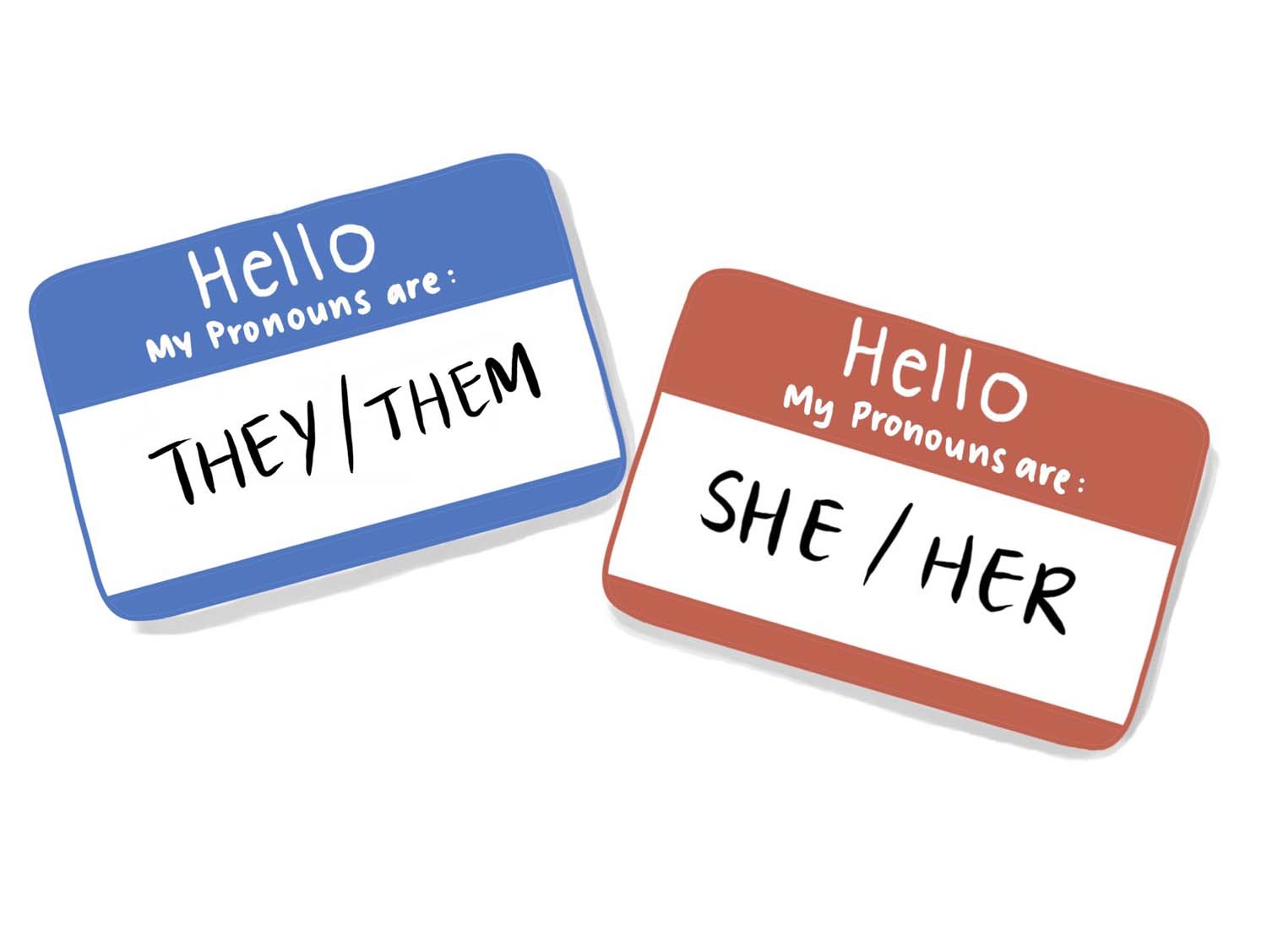Opinion | No excuses — use people’s chosen pronouns


Exciting advancements for nonbinary individuals have come forth in recent weeks. This wave of news began when singer Sam Smith announced they will now be using “they/them” pronouns. Shortly after, Merriam-Webster Dictionary added a new meaning for the word “they,” which permits its use as a pronoun for a “singular person whose gender identity is nonbinary.”
Within the LGBTQ+ community, these two advances have been widely viewed as positive developments, as they are seen as acts that bring awareness and acceptance to the individuals who use pronouns different from those they were assigned at birth. But following Sam Smith’s announcement, the Associated Press, among other news agencies, continued to refer to Smith using “he/him” pronouns. These ignorant mistakes are far too commonplace in our society, and the consequences of not respecting pronouns are often seriously harmful. Sam Smith’s situation serves as a reminder that there is no excuse for not using people’s chosen pronouns.
Those who are hesitant to use someone’s chosen pronouns should consider the scientific evidence, which shows that respecting transgender youths’ preferred pronouns decreases their risk of suicide. A study published at the University of Texas at Austin in June compared the well-being of transgender youths who are able to use their chosen name and pronouns to those who are not. The results show that transgender youths who were able to use their preferred name experience 71% fewer symptoms of depression and a 65% decrease in suicide attempts. Furthermore, the research found that youths’ mental health was stronger when there were more situations in which they were able to use their chosen name and pronouns.
Unfortunately, using chosen pronouns is not enough to eradicate all of the problems transgender and nonbinary people face. According to a 2016 survey from the National Center for Transgender Equality, transgender and gender-nonconforming people face injustices at every phase of their life, from childhood homes to doctors’ offices. Compared to the general population, the transgender and gender-nonconforming individuals surveryed were almost four times as likely to live in poverty and were twice as likely to be unemployed.
In addition to scientific evidence, there is now support for the use of preferred pronouns in the world of linguistics. Many arguments against the use of “they/them” pronouns have been based on the idea that the usage is grammatically incorrect. Such is the logic of writer Josh Gelernter at the National Review, who states that “trying to depluralize ‘they’ is an asinine effort” that “steals precision from the language.” Merriam-Webster Dictionary has eradicated this grammatical debate by adding the new definition for the word “they.” Merriam-Webster has reminded us that while the usage of preferred pronouns may seem excessive or new, it’s “not quite as newfangled as it seems,” as the LGBTQ+ community has “been searching for a nonbinary pronoun for quite a while now.” With Merriam-Webster’s new declaration, language fanatics can rest easy and transphobes are out of valid arguments.
Perhaps the most common argument against using people’s chosen pronouns is that skeptics don’t believe transgender and gender nonbinary people even exist. Many transphobes use the argument that “there are only two genders.” One cannot soundly argue against the existence of an entire cohort of people. At the end of the day, it shouldn’t matter. Calling people by their chosen pronouns isn’t about your beliefs — it’s about basic courtesy. If for some reason you still find yourself struggling to “believe in” transgender people, you should at least be able to respect them at the most basic level. Using one’s preferred pronouns is simply the polite thing to do.
Discrimination against transgender and nonbinary people is widespread. We as a society have a lot of progress to make before equality is achieved, but change can begin with using people’s chosen pronouns. When we call people by the name and pronouns by which they wish to be called, we are one step closer to accepting, understanding and respecting each other — only then can equality be achieved.
Recent Posts
Therese Pitman: Giving back to Pitt’s student-athletes with equality
Pitman is Pitt’s Director of Student Athlete Development where she helps student-athletes navigate their career…
Pitt speech and debate team heads to nationals
The William Pitt Debating Union, Pitt’s speech and debate team, sends students to both in-person…
Visuals: A Year in Review
The visuals desk had an interesting year. In the midst of the 2024 Presidential Election,…
De-stress events across campus offer students a break from studying
During finals week, departments across campus are offering wellness events to help students manage stress…
Pitt students share their summer plans
After a long and strenuous academic year, many students are excited to take a break.…
Column | Collaboration and connection make us better — yes, even in journalism
Today is the last day I will ever do this, and despite the amount of…

